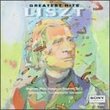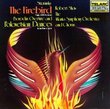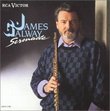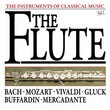| All Artists: Nikolay Andreyevich Rimsky-Korsakov, Ignacio Cervantes, Pyotr Il'yich Tchaikovsky, Ondrej Lenard, CSR Symphony Orchestra (Bratislava) Title: Battle Music Members Wishing: 0 Total Copies: 0 Label: Naxos Release Date: 6/30/1992 Genres: Jazz, Special Interest, Classical Styles: Swing Jazz, Marches, Opera & Classical Vocal, Chamber Music, Forms & Genres, Symphonies, Theatrical, Incidental & Program Music, Historical Periods, Classical (c.1770-1830) Number of Discs: 1 SwapaCD Credits: 1 UPC: 730099523028 |
Search - Nikolay Andreyevich Rimsky-Korsakov, Ignacio Cervantes, Pyotr Il'yich Tchaikovsky :: Battle Music
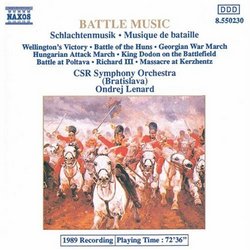 | Nikolay Andreyevich Rimsky-Korsakov, Ignacio Cervantes, Pyotr Il'yich Tchaikovsky Battle Music Genres: Jazz, Special Interest, Classical
|
Larger Image |
CD DetailsSimilar CDsSimilarly Requested CDs
|
CD ReviewsSound the Charge!!! vmzfla | Orlando, Fl. | 02/08/2005 (4 out of 5 stars) "Simply what you get is an eclectic selection of Battle Music leading off with "Wellington's Victory" as the headliner. It is however the rarities included that make this disc attractive. Don't listen to to the cry baby who wanted the "1812" Overture to be included, you can get that anywhere. Pick this one up for the "Richard III" and the two Liszt pieces, making this disc worth more than the bargain price alone. Decent recording quality throughout and informative liner notes included." With the right temperament Leslie Richford | 01/19/2001 (5 out of 5 stars) "One can close ones eyes and picture the energy of the battle and then the stillness of the aftermath on the battlefield while listening to this performance." A Road Less Well-Travelled Leslie Richford | Selsingen, Lower Saxony | 02/05/2005 (4 out of 5 stars) "It would have been interesting to learn whose idea this programme was and how it was put together. Tchaikovsky?s ?1812 Overture? is missing, presumably because Naxos had recorded and published it before elsewhere, but there are some other pieces here which merit more than perfunctory attention. In particular, there are two composers represented here that I had never even heard of before, let alone heard anything by: Mikhail Ippolitov-Ivanov (1859?1935) and Robert Volkmann (1815-1883). The former?s ?Georgian War March? is an excerpt from ?Iveria? and is harmonically quite pleasing and perhaps not as loud and aggressive as the title might suggest. The latter?s ?Overture to Richard III? is a piece which attempts to cover the whole gamut of emotions involved in Shakespeare?s play and not only in the battle with which it ends. Not surprisingly, I have never come across other recordings of these pieces, so I can?t compare them with anything else, but they sound to me rather well done. But the same is true of everything on this disc, which appears to be better recorded than many early Naxos CDs (recording date: early 1989).
The ?star? of this recording is, of course, Beethoven. If this music were subject to historical criticism of the theological variety, no doubt we would hear judgments like: ?These pieces cannot have been written by Beethoven because they sound nothing like his symphonies.? And, indeed, if you have Beethoven as the Promethean hero in mind, you will no doubt find yourself rubbing your eyes and wondering what is going on when you first hear ?Wellington?s Victory? (or the two Military Marches for Wind Band). Drum-rolls and bugle calls are followed by lively renditions of ?Rule Britannia? and ?For he?s a jolly good fellow? (originally a French melody), after which the orchestra breaks out in the noise of battle, with the timpani being savagely beaten to imitate cannon fire. The English victory is then celebrated with a fugue on ?God Save the Queen?. All this is scarcely what lovers of Beethoven?s Fifth or Ninth would expect, and its populism and realism demonstrate quite clearly that Beethoven was not only a genius but also a human being. The disc is completed with two pieces each by Liszt and Rimsky-Korsakov and a short extract from Tchaikovsky?s rarely-heard opera ?Mazeppa?. The longer of the two pieces by Liszt is probably the most interesting: the ?Battle of the Huns? is one of his attempts at musical re-creation of the great works of art and involves not only some stormy battle scenes but also some refined organ passages, captured here very well (but with no mention of the organ soloist in the notes). All in all, an unusual recording that explores avenues less well-travelled. " |

 Track Listings (11) - Disc #1
Track Listings (11) - Disc #1